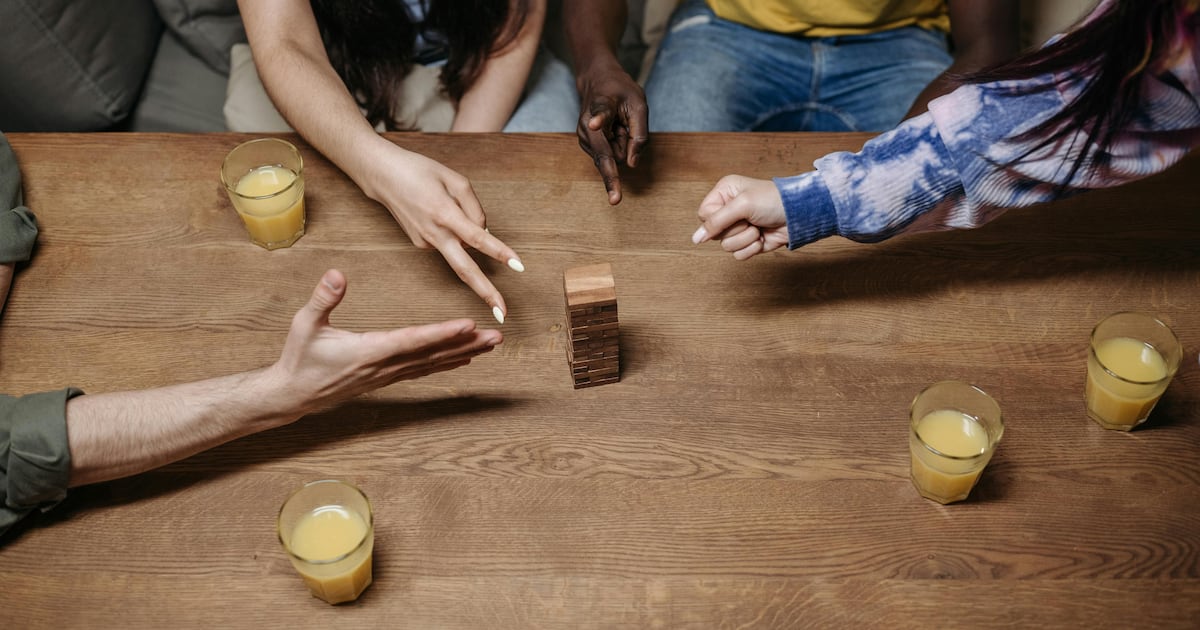Science
Study Reveals Behavioral Patterns in Rock-Paper-Scissors Choices

A recent study published in the Oxford Academic journal in September 2023 suggests that choices made during games of rock-paper-scissors may not be as random as typically believed. The research, which involved 62 participants paired into 31 pairs, analyzed 480 rounds of a computerized version of the game. Using electroencephalography (EEG), the study aimed to uncover the neural activity in players’ brains while they made their choices.
The findings indicate that players exhibit behavioral biases, leading them to favor certain moves over others. Specifically, the study revealed that the move “rock” was chosen more than 50 percent of the time, with “paper” following closely and “scissors” being the least selected option. A key observation was that players who lost tended to show stronger neural encoding of their previous outcomes, which influenced their subsequent choices and contributed to a cycle of losing.
Dan Riskin, a science and technology expert, highlighted the significance of this research during an interview on CTV Your Morning. He emphasized that players often do not vary their choices as much as they should. “Whenever you hit a tie, in the next round you want to play the hand that would lose to the one that you just saw,” Riskin explained. This means that players should strategically select the move that would have lost against their opponent’s previous choice.
Understanding Neural Synchronization in Gameplay
The study further explored how brain waves synchronize when players interact, either cooperatively or competitively. Researchers found that participants often displayed biases that led them to change their responses, irrespective of previous game outcomes. “Many participants were biased towards changing their response,” the study noted.
Interestingly, when players aimed for cooperation, their behavior became more predictable, resulting in increased synchronization of brain activity. In contrast, during competitive play, unpredictability was advantageous, leading to lower synchronization. Riskin noted, “People actually avoid synchrony because they need to be unpredictable to each other, and that gives you an edge when you’re in competition.”
The researchers concluded that although players rely on past results to guide their future moves, this reliance can sometimes hinder their performance. As stated in the study, “Small differences in wins and losses in some pairs suggest that chance, not strategy, determined the winner, likely adding noise and obscuring potential group differences.”
Implications for Game Strategy
Despite these findings, Riskin pointed out that achieving true randomness in gameplay is challenging for humans. The research suggests that the most effective way to disrupt a losing streak in rock-paper-scissors is to incorporate randomness into one’s strategy. If an opponent consistently changes their moves, players should consider using the option that would lose to their last play.
This study provides intriguing insights into the psychological and neural underpinnings of decision-making in simple games, offering both players and researchers a new perspective on the dynamics of rock-paper-scissors. As this classic game continues to serve as a tool for decision-making, understanding the factors influencing choices may enhance gameplay strategies and highlight the complexities of human behavior.
-

 Politics2 weeks ago
Politics2 weeks agoSecwepemc First Nation Seeks Aboriginal Title Over Kamloops Area
-

 World4 months ago
World4 months agoScientists Unearth Ancient Antarctic Ice to Unlock Climate Secrets
-

 Entertainment4 months ago
Entertainment4 months agoTrump and McCormick to Announce $70 Billion Energy Investments
-

 Lifestyle4 months ago
Lifestyle4 months agoTransLink Launches Food Truck Program to Boost Revenue in Vancouver
-

 Science4 months ago
Science4 months agoFour Astronauts Return to Earth After International Space Station Mission
-

 Technology3 months ago
Technology3 months agoApple Notes Enhances Functionality with Markdown Support in macOS 26
-

 Top Stories1 month ago
Top Stories1 month agoUrgent Update: Fatal Crash on Highway 99 Claims Life of Pitt Meadows Man
-

 Sports4 months ago
Sports4 months agoSearch Underway for Missing Hunter Amid Hokkaido Bear Emergency
-

 Politics3 months ago
Politics3 months agoUkrainian Tennis Star Elina Svitolina Faces Death Threats Online
-

 Politics4 months ago
Politics4 months agoCarney Engages First Nations Leaders at Development Law Summit
-

 Technology4 months ago
Technology4 months agoFrosthaven Launches Early Access on July 31, 2025
-

 Top Stories4 weeks ago
Top Stories4 weeks agoFamily Remembers Beverley Rowbotham 25 Years After Murder









